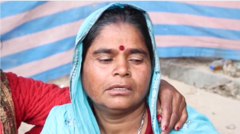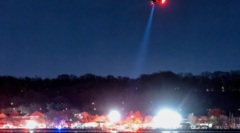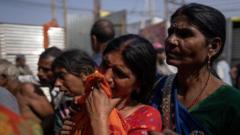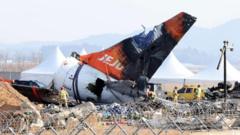Human rights organizations report that following a deadly crowd crush at Nzérékoré stadium in Guinea, the number of fatalities may far exceed government estimates, with over 135 lives potentially lost, primarily among children.
Tragedy at Guinea Football Stadium: Over 135 Feared Dead in Crowd Crush

Tragedy at Guinea Football Stadium: Over 135 Feared Dead in Crowd Crush
Devastating incident shocks the nation as rights groups question official death toll.
In a weekend catastrophe, human rights groups in Guinea revealed alarming figures, suggesting that more than 135 football fans perished in a crush at Nzérékoré stadium during a match, with a significant portion of the deceased being children. This number starkly surpasses the official death toll of 56, raising concerns over the accuracy of reported figures. The estimates are reportedly gathered from local hospitals, cemeteries, eyewitness accounts, and family interviews, with more than 50 individuals still unaccounted for.
Amid the rising tensions, the military government has issued a warning against the dissemination of unverified claims, asserting ongoing investigations into this tragic incident. Justice Minister Yaya Kaïraba Kaba confirmed the initiation of a judicial inquiry aimed at holding accountable those responsible for the chaos, while cautioning that anyone spreading "unverified or malicious information" may face legal action.
The crowd crush occurred in the aftermath of a contentious refereeing decision, which sparked unrest among fans. As violence erupted, police deployed tear gas, exacerbating the situation; many spectators attempted to flee, only to struggle against a tightly packed stadium with a single, narrow exit. Local sources indicated that this confined space was a significant factor in the ensuing tragedy.
The collective of rights organizations implicated the match's organizers and Guinea's ruling military junta, which hosted the match in honor of President Mamady Doumbouya. They remarked on the excessive police response, claiming that official vehicles further injured fleeing fans.
Prime Minister Mamadou Oury Bah declared three days of national mourning in honor of the victims, while government spokesman Ousmane Gaoual emphasized the importance of respecting the mourning period, defending the government's provisional figures amidst growing skepticism regarding the higher estimates.
In a broader context, Guinea is among several African nations currently prohibited from hosting international football due to non-compliance with basic safety standards, an oversight that has drawn attention and criticism, alongside similar bans enforced on Ethiopia, Gambia, Chad, and Sierra Leone.



















